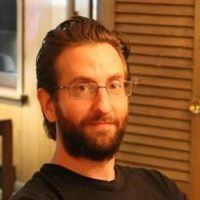Acceptance and Commitment Training (ACT) for Music Performance Anxiety (MPA) (3-week course)
Monday 3rd June 2024, 5:00 PM - 7:00 PM (London Time)
Monday 10th June 2024, 5:00 PM - 7:00 PM (London Time)
Monday 17th June 2024, 5:00 PM - 7:00 PM (London Time)
In this updated three-part course, you will learn how to detect symptoms of music performance anxiety (MPA) among your students/clients and whether those symptoms are problematic or not. You will also learn about Acceptance and Commitment Training (ACT), an evidence-based psychotherapy and coaching model that aims to promote mindfulness and acceptance of one’s MPA symptoms, while also enhancing performance skills by increasing actions consistent with a musician’s values.
ACT can be used in non-clinical settings by practitioners other than psychotherapists, and when applied non-clinically it is called Acceptance and Commitment Training or Coaching. Newer research suggests ACT coaching may be a promising intervention for treating MPA by singing teachers with no formal training or education in psychotherapy (Shaw, Juncos & Winter, 2020; Brussel, 2022; Kutsal, 2022; Mahony, Juncos & Winter, 2022; Paul, 2022; Ballard, 2023; Heasman-Cossins, 2023; Zenobi & Juncos, 2023). You will learn ACT techniques that are safe for use in non-clinical settings to help your students effectively manage their MPA.
Part 1: Defining and Detecting Problematic Levels of MPA
- MPA definition
- Detecting problematic levels of MPA using categories of MPA symptoms
- Understanding how problematic MPA develops and is maintained
Part 2: ACT Skills for Effectively Managing MPA & Increasing Artistic Presence
- Ethical issues in doing this work as a non-clinical ACT practitioner
- Mindfulness
- Acceptance
- Defusion
Part 3: ACT Skills for Taking MPA Less Personally & Enhancing Overall Performances
- Cultivating a More Flexible Sense of Self & Musician Identity
- Identifying One’s Performance or Practice Values
- Committed Action
Dr David Juncos
David Juncos, PsyD, is a clinical psychologist, lecturer, performance coach, author, and music performance researcher based in Philadelphia, PA. He has 20 years of experience in treating a variety of clinical problems, including anxiety, mood, and substance use disorders.
Sorry, this is an archived short course...
We have plenty of upcoming short courses coming soon. See details of some of them below or look at the full list of short courses.

Thursday 19th February 2026
1:00 PM - 2:30 PM
Thursday 26th February 2026
1:00 PM - 2:30 PM
(London Time)
Performing Pain: Vocal Health in Emotional Roles!

Louisa Morgan
How connected are acted emotions to our real-life emotions? Are they expressed differently? Do they feel different in the body? This 2-part course with Louisa Morgan looks at the potential impact of acted emotion on vocal health, why we should consider it as voice practitioners, and how to care for our performers needing to work with it.


Tuesday 24th February 2026
5:00 PM - 7:00 PM
(London Time)
Incorporating CBT principles within vocal health and voice care

Dr Luke Aldridge-Waddon
Join Dr Luke Waddon as he introduces the principles and techniques within cognitive-behavioural therapy (CBT) in relation to the voice and voice care. He will discuss psychological factors relevant to the development and maintenance of voice disorders and how these might be approached from a cognitive-behavioural perspective. He will describe theoretical concepts and therapeutic components often used within CBT and consider how these might be applied when working with voice users.


Tuesday 3rd March 2026
5:00 PM - 7:00 PM
(London Time)
Sex differences in VOICE!

Dr Richard Lissemore
This two-hour workshop, led by performer, articulatory phoneticist, and voice physiologist, Dr. Richard Lissemore, will examine in detail the role that biological sex plays in the perception and pedagogy of singing voices. We'll consider how parameters such as anatomy, physiology, articulation, resonance, and radiated acoustics influence the perceptions and pedagogical decision-making of singing teachers.
